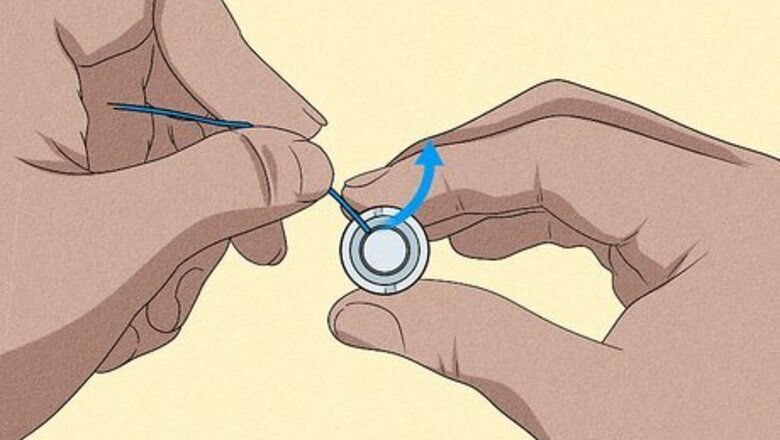
views
- If your vape pen isn’t charging, lift the connection plate on the vape battery or charger with a paperclip, or remove any debris inside the charging port with a toothpick.
- If your vape pen is charging but not hitting, make sure the voltage and temperature settings match the cart requirements, and retwist the cartridge onto the battery so it’s finger-tight.
- If you still can’t take a hit, dampen a cotton swab in rubbing alcohol and clean the surface of the connection plate on the vape battery.
If Your Vape Pen Isn’t Charging
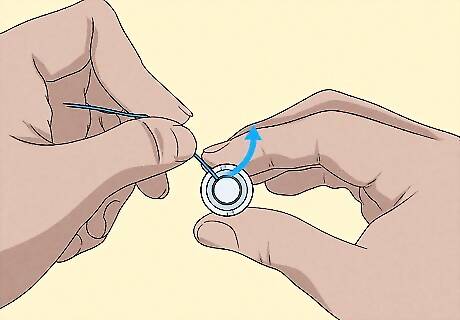
Adjust the connection plate on your vape battery with a paperclip. If your vape pen is blinking white, it means your battery isn’t fully connected. Unscrew the battery from the cartridge, then hold it with the threads facing up to find the connection plate—it should look like a small metal circle on the top of the battery. Insert a paperclip between the edge of the plate and the threads to lift it up, then gently guide the paperclip around the border of the plate until it meets the middle of the threads. Reassemble your vape pen and look for a red light to confirm that it’s charging. If not, check the connection plate in the USB charger that your vape plugs into. Lift the plate with a paperclip so it sits right above the surrounding threads in the charger, then plug in your vape.
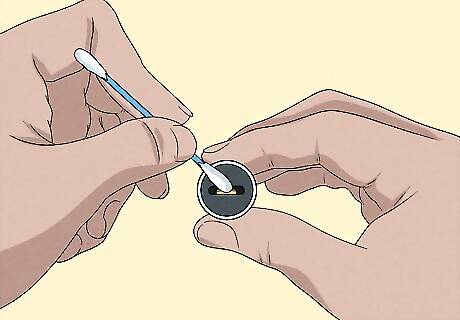
Clean your vape pen with a toothpick or damp cotton swab. Use a toothpick to remove any dust or lint inside the charging port of your vape, which can cause your pen to stop charging. If you notice oil or thicker debris clogging your vape, dampen a cotton swab with isopropyl alcohol, squeeze out any excess liquid (so it’s not dripping), and carefully clean the inside of the port. If you use a damp cotton swab, blot away excess alcohol with a clean paper towel, and be sure to let your vape pen dry completely before charging it.
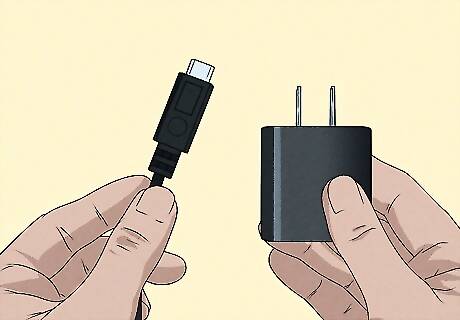
Use a charger that’s compatible with your specific vape pen. If you’re using a random charger, review your pen’s specifications and purchase a new one that meets the requirements. While it’s easy to charge your vape pen with a car, laptop, or phone charger, it might be the reason why your pen isn’t charging—some chargers just don’t provide enough power. To avoid frying your battery (and potentially starting a fire), stay away from any kinds of chargers that claim to juice up your vape quickly.
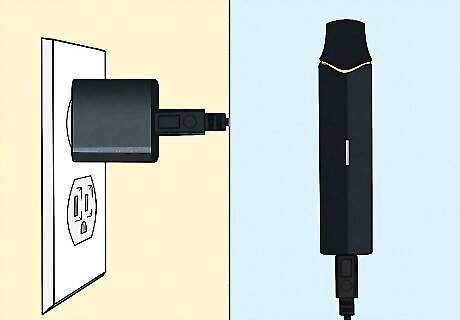
Try a different power source to charge your vape pen. If the LED light on your pen doesn’t glow green or red, there might be a problem with the USB port or power source you’ve connected it to. Try charging another device, like your phone, in the same source to narrow down the issue. If your other device doesn’t charge, plug your vape charger into a different wall adapter or your laptop. If your pen still won’t charge, it might mean the battery is damaged. At this point, there’s not much you can do, and you may have to purchase a new battery or pen.
If Your Vape Pen Is Charging But Not Hitting
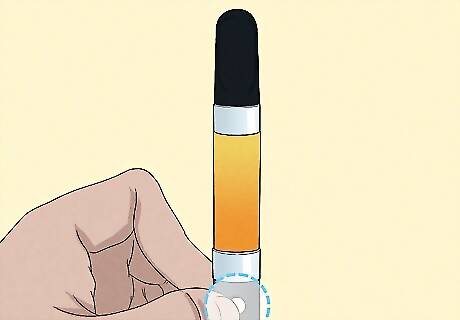
Make sure your vape pen is turned on. If your vape pen has a button, follow the manufacturer’s instructions to switch it on correctly. For most models, this means pressing the button 5 times within the span of 2 seconds, without pausing in between clicks. However, other pens are draw-activated, meaning the pen turns on when you inhale through the mouthpiece. If your pen is draw-activated and doesn’t fire when you take a hit, it might mean there’s a clog. If that’s the case, breathe in through the mouthpiece gently to preheat the cart and melt any clogged oil.
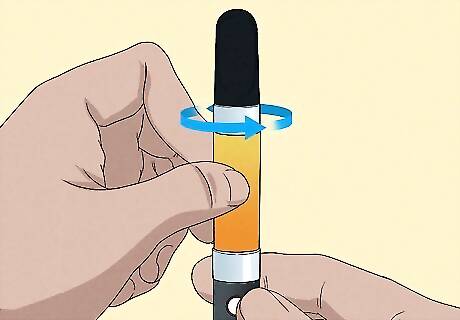
Retwist the vape cartridge to loosen it. If your pen charges but won’t hit, unscrew the cartridge and carefully twist it back on—aiming for a finger-tight hold. Screwing on the cart with the wrong amount of pressure can cause problems between the atomizer and the battery, making it seem like you have a clog or blockage. When you twist the cartridge back on, think of it like tightening a nut onto a bolt with your fingers (instead of a wrench). It should be firmly connected but not too tight to where it’s difficult to untwist.
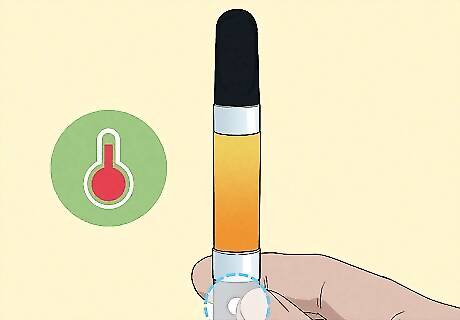
Adjust the voltage and temperature of your vape pen. If your pen allows manual adjustments, double check that the current voltage and temperature meets the cartridge requirements. In general, most manufacturers recommend starting at 2-2.5 volts, then gradually adjusting to a higher setting until you’re able to hit your pen. If you reach the max range but still aren’t getting any vapor, there might be an issue with the components of your pen, such as a clogged cartridge or damaged coil. If your battery has a button, pressing it 2-3 times will usually adjust the temperature—the light should flash green for low, blue for medium, and red for high. If your pen has a digital screen, use the arrow keys to adjust the settings.
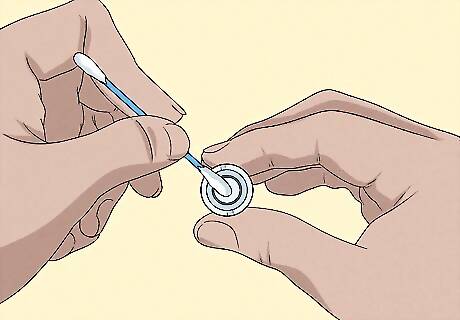
Unclog the vape cart with a cotton swab and rubbing alcohol. If you can’t inhale at all, there might be oil built up on the surface of the connection plate. Dampen the end of a cotton swab in alcohol, and squeeze out any excess liquid so it isn’t dripping. Unscrew the cartridge from the battery, then carefully clean the plate with the damp cotton swab to remove any build up. Wipe away the excess alcohol with a clean paper towel, then set it aside to dry completely. Alternatively, fix a clogged cart by blowing into the cartridge to clear out debris under the mouthpiece. Or, warm up the cartridge by holding your pen about 6 inches (15 cm) away from a hair dryer and heating it for 15-30 seconds. If you’re using a disposable vape pen, warm up the cartridge with the hair dryer, then stand it upright so gravity pulls the oil down, away from the mouthpiece. Check the battery for any residue, too. Using a low-quality cartridge or a cartridge that isn’t designed for your specific vape can cause oil to leak onto the battery. If this happens, it’s time to purchase a new pen.
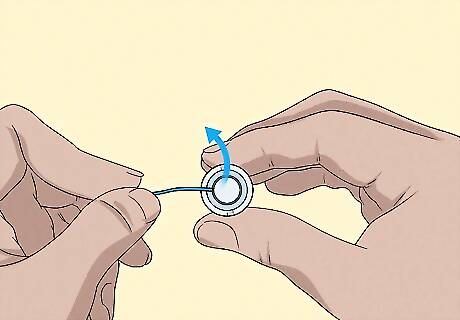
Lift up the connection plate on your vape battery with a paperclip. If the LED light is on but no vapor comes out, unscrew the battery from the rest of your vape pen and hold it with the threads facing up; the connection plate should look like a small metal circle along the top of the battery. Insert a paperclip between the edge of the plate and the threads to lift it up, then gently guide the paperclip around the circumference of the plate until it’s raised to the middle of the threads. At this point, reassemble your vape pen, and be sure not to twist the cartridge on too tight to avoid pushing the connection plate down. The plate should make proper contact with the bottom of the cartridge so you can hit your vape. This troubleshooting tip works well with any vape cartridges that have 510 thread batteries, such as Kandypens, Ooze, O2VAPE, Vessel, and Yocan.
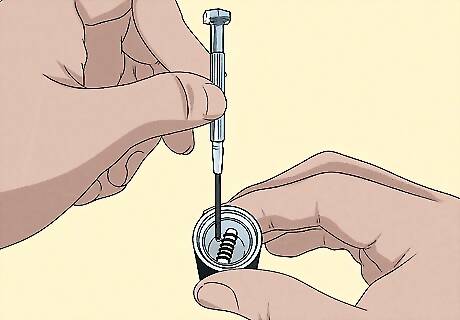
Replace the coil inside your vape pen. Unscrew the tank from the body of your pen, and empty any remaining liquid in a trash can. Twist the old coil counterclockwise until it comes off the base of your vape, then pre-saturate the cotton in your new coil with 5-8 drops of vape juice. Wait 30-60 seconds for the liquid to absorb, and add a new coil by twisting it clockwise until it’s secure—the cotton should be facing upward toward the tank. If your vape has a burning smell or taste, it could mean the coil isn’t able to heat up to the right temperature to create any vapor. This usually happens if you don’t use your vape for a while, or if the oil inside the cartridge thickens and builds up around the heating coil in the inner chamber.
How to Fix a Dab Pen
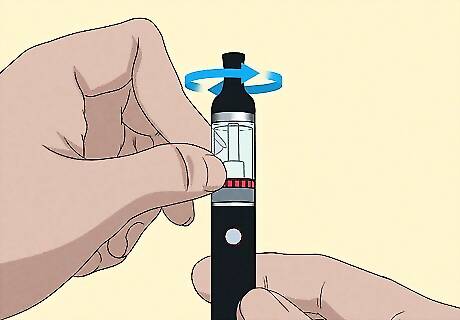
Rescrew the THC cartridge to loosen it up. If your dab pen charges but won’t hit, unscrew the cartridge from the battery completely, then slowly tighten the cart back onto the battery until it feels snug and doesn’t jiggle around. Screwing the cart too tight can prevent it from working properly, making it seem like there’s a clog or blockage.
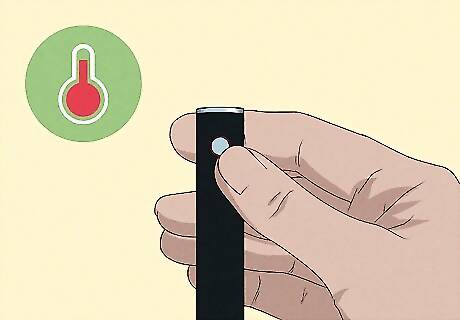
Adjust your dab pen’s voltage or temperature settings. If your pen is adjustable, check the manufacturer's instructions to find out the recommended heat or voltage for your model. Most THC carts should be vaped at 3.3 volts or lower because they are viscous, but the general rule of thumb is to start at the lowest setting (2-2.5 volts), then gradually work up until you reach your desired vapor (without surpassing 4 volts). If your dab pen has a digital screen, use the arrow keys to raise or lower the temperature. If it has a button, press it 2-3 times to adjust the temperature—the light should flash green for low, blue for medium, and red for high.
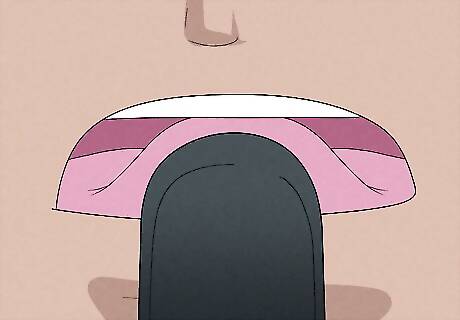
Blow through the mouthpiece to remove any clogged oils. If you can’t hit your dab pen, there’s probably some cannabis oil stuck in the mouthpiece of the cartridge. Just blow through the mouthpiece of the pen (instead of inhaling) to push the excess oil into the heating coil so it warms up and vaporizes. Alternatively, unscrew the mouthpiece from the cartridge and drop it into a bowl of boiling water. This will melt away the oil so you can take a hit. Since THC oils are much thicker than the oil cartridges found in standard vape pens, it’s pretty common for dab pens to get clogged.
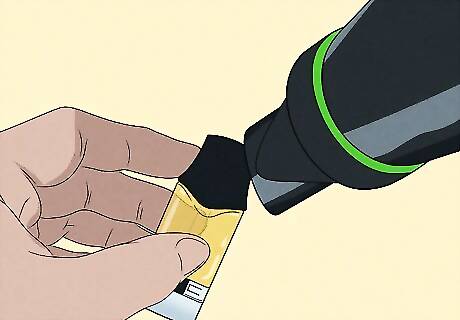
Warm up the cartridge with a hair dryer before taking a hit. If you’re having trouble getting airflow or you suspect there’s clogged oil in your dab pen, turn a hair dryer to the lowest setting, and hold it 1 foot (30 cm) away from the cartridge. Let it run for 2-3 minutes to melt away any oil, then see if you can take a hit. Some dab pens have a preheat setting if you press the button 2-3 times. If your pen has a button, try holding it down for a few seconds before you inhale to warm up and melt the oil.
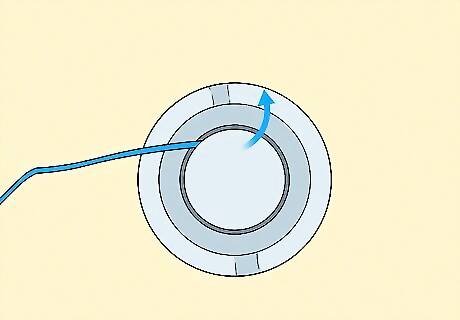
Adjust the connection plate on your dab pen with a paperclip. Remove the battery from the rest of your dab pen and hold it with the threads facing up; the connection plate should look like a small metal disk on the top of the battery. Place a paperclip between the edge of the connection plate and the threads to lift it up, then carefully guide the paperclip around the border of the plate until it’s lifted up to the middle of the threads. Gently screw the cartridge back onto the battery until it’s finger-tight, then check if you can take a hit.


















Comments
0 comment